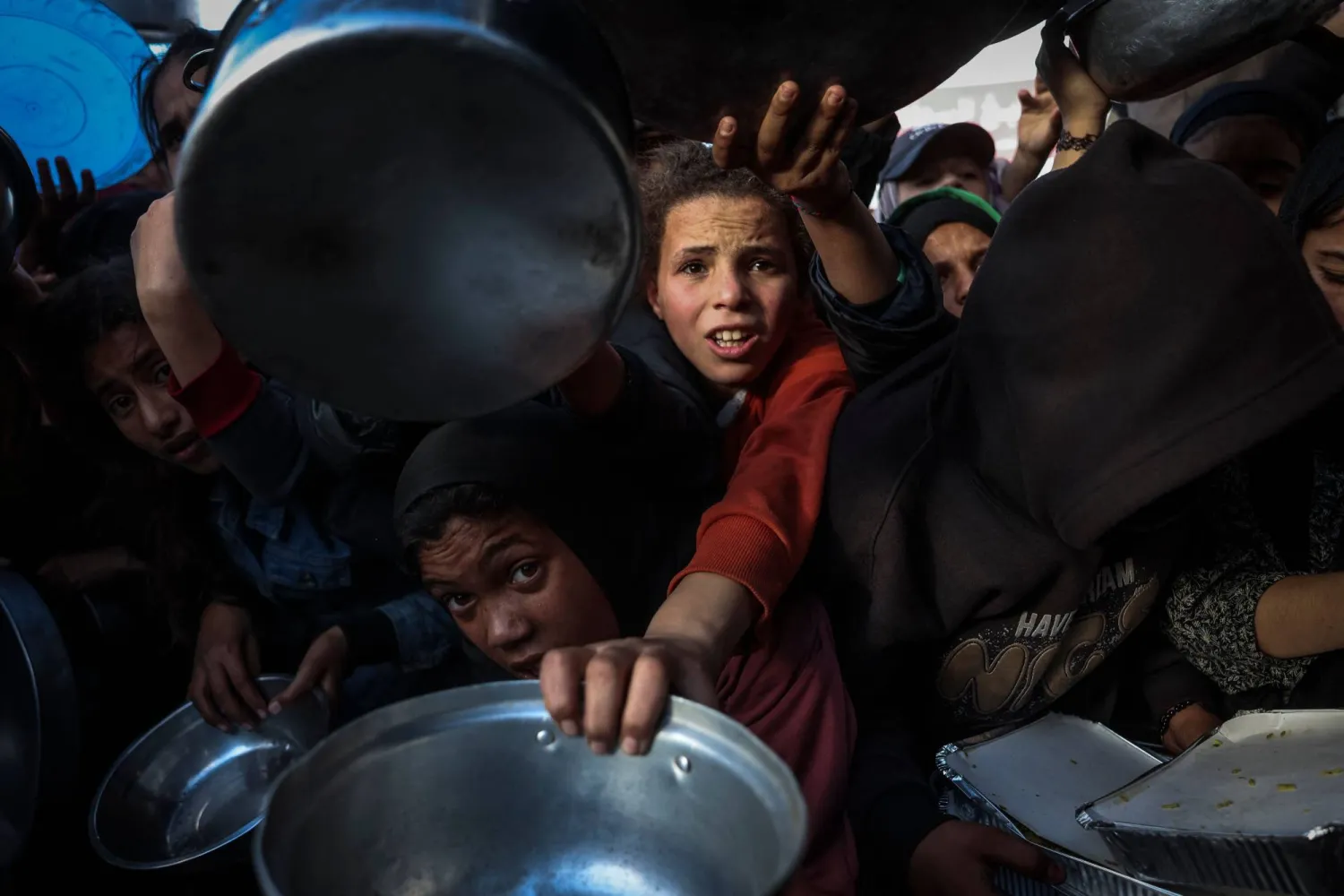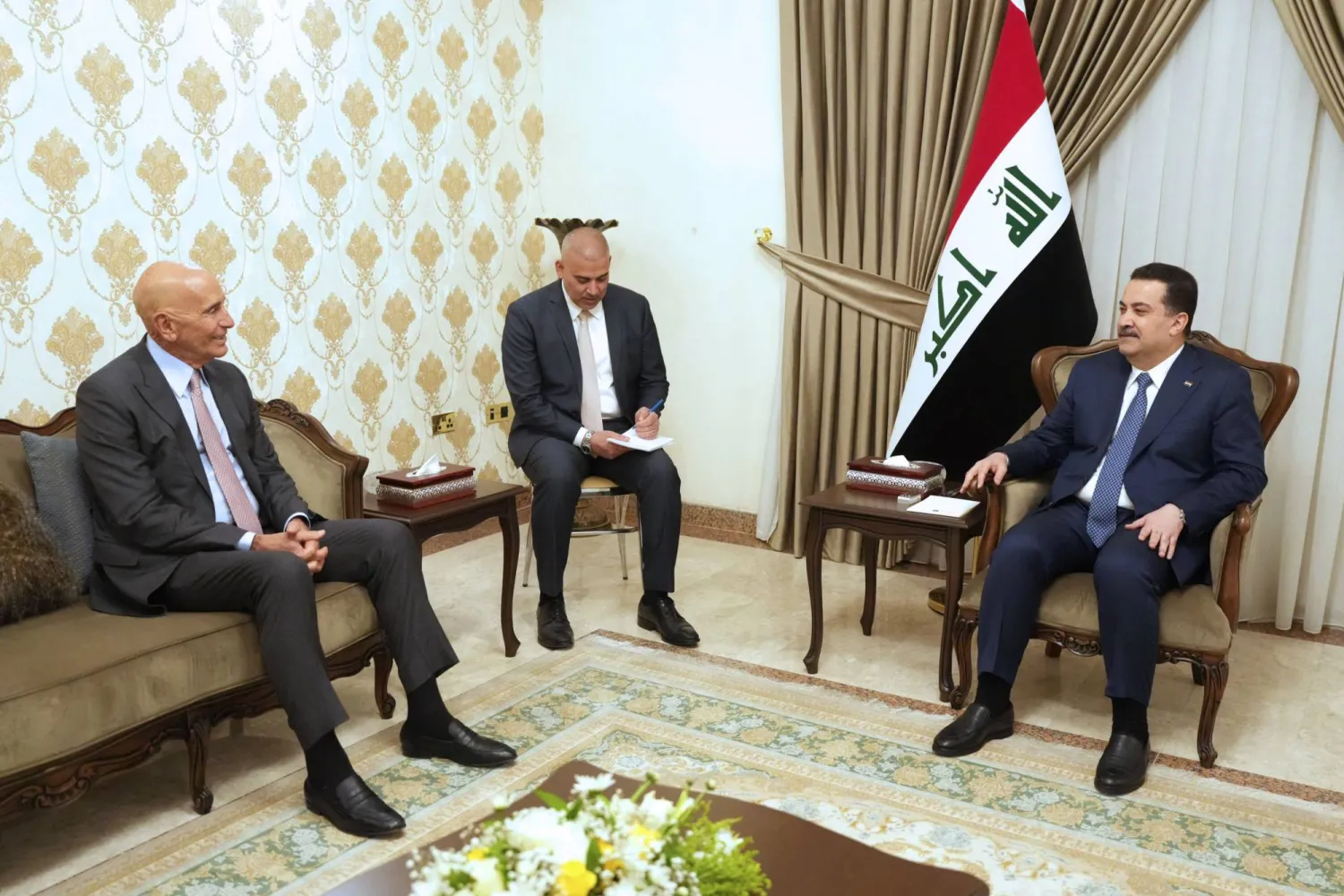Israel is considering a new Qatari proposal aimed at ending the war and withdrawing the Israeli army from the Gaza Strip in exchange for releasing all Israeli detainees and exiling Hamas leaders from the enclave.
Hamas did not immediately comment, but informed sources told Asharq Al-Awsat that the movement would reject the proposal if it were true.
Israeli Channel 13 said on Wednesday that Qatar had presented a new proposal, according to which Hamas leaders would be exiled, all hostages would be gradually released, and the Israeli army would entirely withdraw from the Strip.
According to the channel, the Israeli war cabinet, which met late on Wednesday, discussed the proposal, which was revealed hours after White House Coordinator for MENA Brett McGurk met in Doha on Tuesday with Qatari Prime Minister Sheikh Mohammed bin Abdulrahman Al Thani.
They discussed regional tensions and efforts to secure the release of detainees in Gaza, according to a US source and other informed sources.
Axios website noted that "Qatar is a key US ally in the region and is assisting the Biden administration with efforts to free the hostages held by Hamas."
According to the sources, Qatar, together with Egypt, is trying to mediate between Israel and Hamas on a new hostage deal, but away from the media.
The White House and the Qatari government kept the trip very low profile.
They didn't announce McGurk's visit or issue a readout of his meeting with the Qatari Prime Minister.
The White House didn't immediately respond to a request for comment, and the Qatari Embassy in Washington declined to comment.
Pushing efforts to release detainees came after previous failed attempts.
Negotiations resumed earlier this week after they were suspended over Israel's assassination of senior Hamas official Saleh al-Arouri in Beirut.
McGurk's trip followed a regional tour by Secretary of State Antony Blinken to discuss the war in Gaza and escalating tensions across the Middle East.
On Tuesday, Blinken met in Tel Aviv with the families of US detainees. He stressed in the meeting that returning all hostages to their families is a top priority for the administration, according to the families' statement.
"We're intensely focused on bringing the remaining hostages home," Blinken told reporters Tuesday.
He also discussed the hostage issue with the heads of the Mossad and Shin Bet spy agencies in Israel.
Following reports of the deal, the Hostages and Missing Families Forum demanded that the Israeli cabinet approve any deal that would lead to the release of their children alive.
The Forum stated that the reports about a new deal that will be presented to the cabinet offer a little hope to the families who are anxious about the fate of their loved ones.
The detainees "have been suffering in the Hamas tunnels for almost 100 days and nights without food, water, and life-saving medical treatment," the Forum said in a statement Wednesday.
"We demand that the war cabinet must not concern itself with anything other than the return of the hostages; we demand that they approve any deal that will lead to their immediate release alive!"
In a briefing Wednesday, war cabinet minister Benny Gantz stressed that the ongoing campaign's priority was the hostages' return.
"The most important thing is returning the hostages; it is prioritized over all fighting elements," he said.
"To the hostages, if you can hear me, I want you to know that we're doing everything we can to bring you back to your loved ones."
Hamas did not immediately comment on the reports, but a source close to the movement told Asharq Al-Awsat the alleged proposal would be rejected.
The source asserted that Hamas leaders would rather die than leave Gaza.









